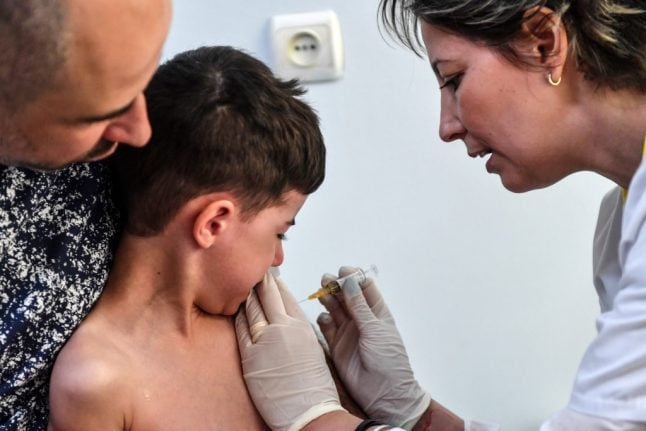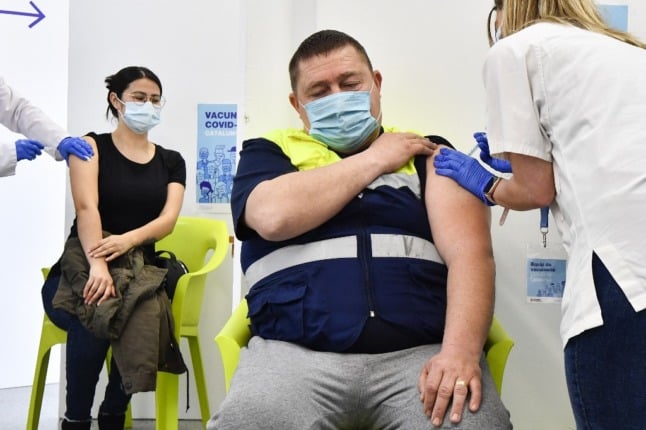Health authorities have suggested flu vaccinations for children in previous years as well, but it will be especially important in 2020 because of the ‘double threat’ of influenza and Covid-19 surging at the same time.
Flu season typically peaks between December and February, but it can last longer.
The reasons for the recommendation are three-fold:
Children can get very sick from the flu.
According to the Federal Office of Public Health (FOPH), children are more vulnerable to flu viruses because their immune system is less developed than that of adults.
Infants can suffer more serious and protracted complications, such as pneumonia.
“Unlike the coronavirus, the flu affects kids. Every year, there are hundreds of children hospitalised with flu in Switzerland”, Geneva pediatrician Dounia Cruzado said in an interview this week.
READ MORE: Majority of Switzerland’s population 'wants to be vaccinated against Covid-19'
During the 2019 / 2020 flu season, babies and toddlers constituted the most affected age group, FOPH said.
“But many parents don’t think it’s a serious disease”, Cruzado noted.
Children can transmit the virus to others.
When it comes to respiratory viruses like the flu, children are well-known vectors of infection.
By coughing or sneezing, infected children can easily contaminate elderly people, like their grandparents, who are at an increased risk of flu-related complications.
“This year, we focus on vaccinating everyone who has contact with people at risk, including those over 65 years of age”, Christoph Berger, president of the Federal Commission for Vaccination Issues, told SFR broadcaster.
Prevent the overload of the health system
“If the Covid-19 and flu viruses circulate at the same time, the health system will be saturated quite quickly, as the number of medical consultations, emergencies, and hospital stays increases”, Berger said.
But as more people get vaccinated against the flu, “we will be able to maintain our health system”, he added.
Is the flu vaccine safe for young children?
Vaccine skeptics argue that children should develop their own defenses against viruses.
Berger disagrees. “When you vaccinate children against the flu, they form antibodies against the antigens in the vaccine – and these are the same as those that circulate with the flu”.
However, unlike the flu, the vaccination doesn't make you sick”, he added.
Does Switzerland have enough vaccines?
Switzerland’s flu vaccine stock is 1.2 million doses for a population of over 8 million — not enough to immunise everyone.
There has never been more than a million vaccinations against influenza per year in Switzerland, but given that this year more people may choose to get the shot, there may be a shortage of vaccines.
Should face masks be used instead of the vaccine?
While authorities say the vaccine is still the best protection “we already have interesting data which shows that when masks are worn, there is less flu “, said Geneva pediatrician Alessandro Diana.
“I am amazed at the ability of some children as young as six to handle and be skilled in wearing a mask”, he added.



 Please whitelist us to continue reading.
Please whitelist us to continue reading.
Member comments